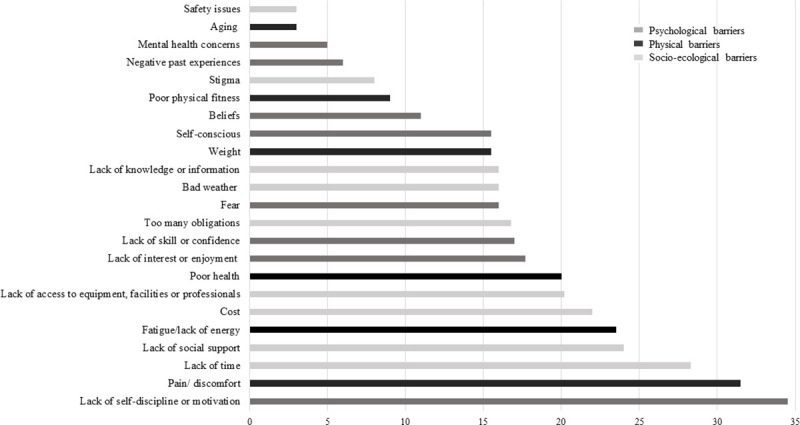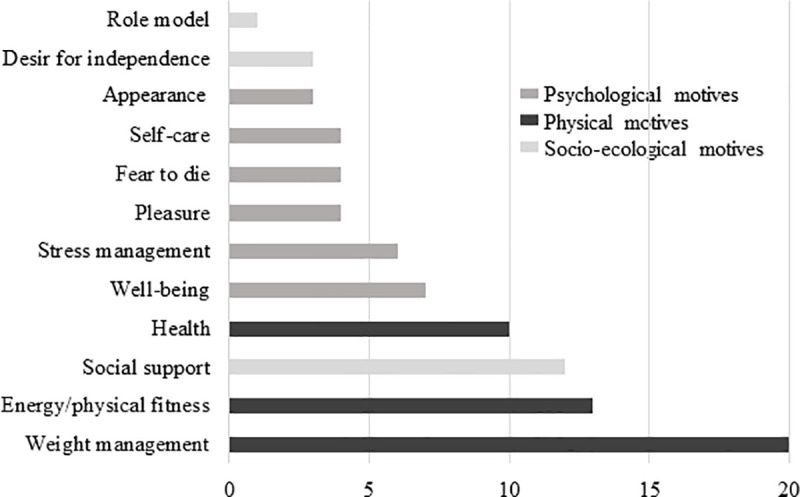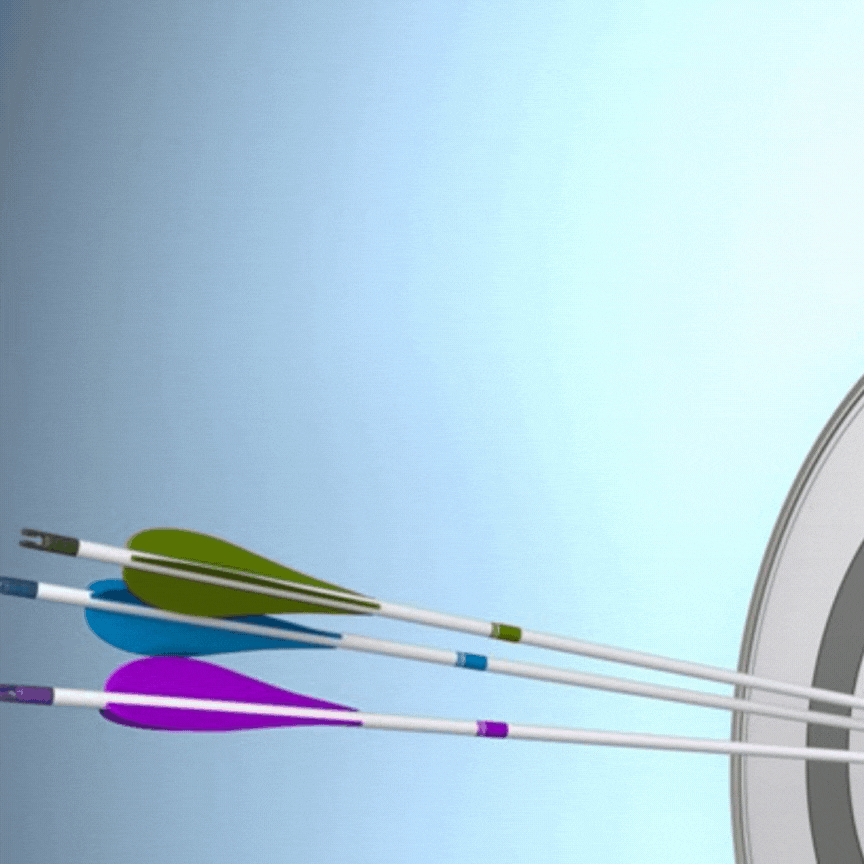
Understanding and Coping with the Challenges of Overweight Life: A Compassionate Guide
It’s not easy being overweight. I know. Many people that I love and know deal with it. Raising kids, the pandemic, and things that make it not easy to go to the gym have impacted my life. Accordingly, there is life at the end of the tunnel. This article is a compassionate guide about understanding and coping with the challenges of overweight life.
As much as weight is just a number, it can have significant impacts on your physical and mental well-being. Overweight individuals face a myriad of challenges, from difficulty finding clothes that fit to struggling with weight loss. However, one of the most significant challenges is the impact on mental health. Being overweight can lead to anxiety, depression, and other mood disorders. Additionally, the stigma and shame associated with being overweight, genetic factors, weight cycling, and other factors can further exacerbate the situation. In this article, we will delve deeper into the impact of overweight life on mental health, and explore strategies and resources to help individuals cope with these challenges.
Here’s what we’ll cover:
- Impact on mental health
- Stigma and shame
- Genetic factors
- Weight cycling causes physiological and emotional effects
- Body positivity related to weight
- Fear of Judgment and Discrimination
- Low Self-Esteem and Negative Body Image
- Difficulty Finding Clothes that Fit
- Health Concerns
- Struggle with Weight Loss
- Emotional Eating
- Difficulty with Physical Activity
- Concerns About Relationships
- Feeling Like a Failure
- Support and resources
Impact on Mental Health
The challenges of overweight life can take a toll on mental health, leading to anxiety, depression, and other mood disorders. Studies have shown that people who are overweight are more likely to experience mental health challenges than those who are not. This impact can be caused by a variety of factors, including societal stigma and personal shame. However, it is important to recognize that these mental health challenges are not inevitable and can be managed. By seeking support, practicing self-care, and adopting healthy habits, individuals can improve their mental health and overall well-being.
Stigma and shame
Stigma and shame surrounding weight and body size are prevalent in our society, leading to negative consequences for those who are overweight. Studies have shown that weight stigma can lead to lower self-esteem, depression, and anxiety. Internalized weight stigma, or negative attitudes and beliefs about one’s own weight, can also have negative impacts on mental health (see 2022 study). Additionally, even when controlling for BMI, weight stigma is consistently associated also with poor physical health outcomes. As a result, studies show weight stigma can lead to avoidance of healthcare, leading to further health complications.
Several studies have recorded detrimental weight-based stereotypes that portray overweight and obese individuals as indolent, weak-willed, unsuccessful, unintelligent, lacking self-discipline, having poor willpower, and being noncompliant with weight-loss treatments. These stereotypes lead to stigma, prejudice, and discrimination against obese persons across different areas of life, such as the workplace, healthcare facilities, educational institutions, the mass media, and even intimate interpersonal relationships.
It’s important to acknowledge the impact of weight stigma and work towards creating a more accepting and inclusive society.
Genetic Factors that Impact Weight
Losing weight can be challenging, especially for those with a genetic predisposition to being overweight. Genetics can affect appetite, metabolism, and food cravings, among other things. However, it is important to understand that lifestyle factors like your mindset, diet and exercise can still have a significant impact on weight management, even for those with a genetic predisposition. This website is a great source to learn more about these factors.
Obesity is a result of chronic energy imbalance, where a person consumes more calories than needed. This is often the case in an obesogenic environment, where high-calorie foods are easily accessible, but opportunities for physical activity are limited.
The brain regulates food intake by responding to signals from hormones and small molecules, which are controlled by genes. Energy regulation is primed to protect against weight loss, rather than to control weight gain, which may explain why weight loss can be difficult for some individuals.
Over 400 genes have been implicated in the causes of overweight or obesity. These genes can affect appetite, satiety, metabolism, body-fat distribution, and stress-related eating. Interestingly, the British Medicine Journal published a study that found that people responded to diet and exercise activities to lose weight, regardless of whether or not they had the genetic propensity.
Characteristics that suggest a significant genetic contribution to obesity include lifelong overweight, a family history of obesity, and difficulty losing weight despite diet and exercise. On the other hand, being influenced by food availability, being moderately overweight, and being able to lose weight with a reasonable diet and exercise program suggest a lower genetic contribution to obesity.
While genetics can play a role in weight management, it’s important to focus on lifestyle factors that are within our control. Eating a healthy, balanced diet and staying physically active is proven to help manage weight and reduce the risk of obesity-related diseases. Remember, small changes can lead to big results.
Weight Cycling Causes Physiological and Emotional Effects
“Lose 20lbs in 30 days…” When you hear quick-fix statements like this, all it does is hurt you in the end. The result is a yo-yo diet. This can lead one feeling anxious, depressed, and frustrated. Yo-yo dieting can also result in painful psychological effects, such as a lack of confidence and a warped relationship with food.
Yo-yo dieting, also known as weight cycling, is a common approach to weight loss that involves losing and regaining weight repeatedly. While it may provide short-term results, studies have shown that it is not an effective method for sustained weight loss. In fact, yo-yo dieting can have negative effects on your body and overall health.
One reason yo-yo dieting is ineffective is that it tells your body that you live in a food insecure environment. This triggers a shift into a fat storage mode, leading to weight gain. In addition, short-term diets that are not sustainable and ultra-very low-calorie diets can cause yo-yo dieting. Hunger, cravings, boredom, and fatigue can also cause yo-yo dieting, leaving you feeling defeated. It feeds the challenges of overweight life as a result.
How to Avoid yo-yo Dieting
To avoid yo-yo dieting, it’s important to focus on permanent changes in your nutrition and exercise habits. Rather than counting calories, focus on the quality of food you eat. Choose unprocessed foods like fruits, vegetables, nuts, seeds, and beans. Look at your body weight as the representation of your long-term nutritional and exercise habits, genetics, and exposure to processed or unhealthy foods.
One effective way to end yo-yo dieting is to eat in a way that keeps your blood sugar level steady. This can be achieved by choosing foods that have the least impact on your blood sugar. Switching from a high carb, low-fat diet to a lower-carb, higher protein/healthy fat diet can help control hunger and reduce cravings for sweets. Gradually increasing exercise as you progress towards your goal is also beneficial.
It’s also essential to build a positive mindset and create new beliefs while becoming aware of old beliefs that may be hindering your progress. In addition to the negative effects on weight loss, yo-yo dieting is linked to a higher risk of cardiovascular death in postmenopausal women. Eating a diet low in processed foods which includes fruits, vegetables, whole grains, fish, olive oil, nuts, and low-fat dairy is proven to lower the risk of cardiovascular disease over time.
The process of weight loss can trigger physiological processes that cause increased hunger and decreased energy expenditure. These changes are driven by hormonal signals, but their exact nature is not fully understood. Fast weight loss through severe caloric restriction triggers strong counter-regulatory stimuli, while slow weight loss through dietary changes seems to evade some of these responses–as found in a 2019 study.
Body Positivity Related to Weight
Being satisfied with where you are today is a healthy way to think about it. It’s ok to both want to be healthy and also be happy with where you are today. You are thankful for the you today who has made the decision to lose fat. Plus, you will be happy too as you do smart, proven ways to lose fat.
Body positivity is all about embracing the unique qualities that make you, you, but when it comes to losing weight, people often associate it with hating their body. It can help coping with the challenges of overweight life. However, it’s not only possible to adopt a body-positive mindset while also trying to lose weight. Doing so can even help you lose weight in a healthy and sustainable way. Here are some tips to help you lose weight while maintaining a positive body image:
- Imagine your healthy future self and start living that life now by incorporating healthy habits into your daily routine.
- Keep track of your progress by monitoring your food intake, exercise routine, and mood, as it can help you stay motivated and see the progress you’re making.
- Break down your weight loss journey into small, manageable steps, rather than trying to make drastic changes all at once.
- Stay active throughout the day by finding ways to move more, even in small ways, to burn more calories and stay energized.
- Create a personalized plan that works for your body and lifestyle, instead of relying on diets or strict food rules.
Being Thankful and Active are Key
Moreover, being satisfied with where you are today is a healthy way to think about your weight loss journey. It’s okay to both want to be healthy and happy with where you are today. Being thankful for the you today who has made the decision to lose fat is a positive and empowering mindset. By doing smart, proven ways to lose fat, you will feel happy and accomplished.
The relationship between physical activity and body image has been a topic of interest for a while. A 2017 review of studies showed physical activity is positively related to body image in both men and women. However, there is still a need for further research to investigate the underlying mechanisms and potential moderators of this relationship. The analysis revealed that physical activity is positively related to body image. By emphasizing the positive impact of physical activity on body image, one may be more motivated to engage in physical activity and maintain a healthy lifestyle.
It’s possible to lose weight while maintaining a positive body image by adopting a body-positive mindset, creating a personalized plan, and incorporating healthy habits into your daily routine. Moreover, physical activity can have a positive impact on body image, which can be a motivating factor to maintain a healthy lifestyle. Remember to focus on the things that make you feel good and healthy, and you can create a sustainable weight loss plan that feels empowering and joyful.
Fear of Judgement and Discrimination
If you are someone who is overweight, you may have experienced the fear of judgment and discrimination from others. It’s an unfortunate reality that overweight individuals are often stigmatized and face discrimination in various aspects of life. It can be a constant source of anxiety and can hold you back from pursuing your goals and living your best life.
You may have experienced judgment and discrimination in different ways, such as feeling stared at or receiving rude comments from strangers or acquaintances. Perhaps you’ve been passed over for job opportunities or promotions, despite your qualifications and skills. Or maybe even encountered discrimination in the healthcare system, where medical professionals may overlook or dismiss your concerns because of your weight.
Here are some common types of fear of discrimination examples that overweight people may feel:
- Employment Discrimination: Overweight people may fear job discrimination due to weight–concerned employers may perceive them as lazy or lacking self-control.
- Social Discrimination: Overweight people may fear social exclusion or ridicule–worrying about rejection by friends, family, or romantic partners.
- Healthcare Discrimination by Healthcare Providers: their weight is used as a justification for substandard care, or they may be subjected to stigmatizing comments.
- Size Discrimination: Overweight people may fear exclusion from activities or spaces due to their size–including fitting into seats or participating in physical activities.
- Intersectional Discrimination: Overweight people who also belong to other groups that are treated unfairly may worry about being discriminated against more than once (ex. skin color and weight).
On a similar note, here are common types of fear of judgment overweight people experience. Fear of being:
- Ridiculed or mocked from others based on their appearance.
- Stereotyped or judged as lazy, unmotivated, or lacking self-control.
- Excluded or ostracized from social events or activities.
- Discriminated against in the workplace due to their weight.
- Judged or criticized by healthcare professionals due to their weight.
- Rejected or dismissed in romantic relationships because of their weight.
- Judged by friends or family members who may not understand their struggles.
- Not taken seriously or respected due to their weight.
- Seen as a burden on society or taxpayers due to healthcare costs associated with obesity.
- Able to participate in certain activities due to weight-related limitations.
How to Cope with Fear of Judgement or Discrimination Related to Weight
It’s important to acknowledge that this fear is valid and that you are not alone in experiencing it. This is part coping with the challenges of overweight life. However, it’s also important not to let this fear hold you back from pursuing your goals and living your life to the fullest. Here are some tips for coping with the fear of judgment and discrimination:
- Surround yourself with supportive people who will uplift and encourage you. This can be friends, family members, or even online communities of like-minded individuals.
- Focus on your strengths and accomplishments, rather than your weight. You are more than a number on a scale and have unique talents and abilities that make you valuable.
- Practice self-compassion and remind yourself that you are deserving of respect and kindness, regardless of your weight.
- Educate yourself on your rights and seek help if you experience discrimination in any aspect of your life. There are resources and support available to help you navigate these situations.
Remember that you are worthy of love and respect, regardless of your weight. Don’t let the fear of judgment and discrimination hold you back from pursuing your dreams and living your best life.
Low Self-Esteem and Body Image
Low self-esteem and negative body image issues that affect many people, especially women. Here are ways these challenges of overweight life can manifest:
- Comparing oneself to others and feeling inferior
- Believing that one’s worth is based on their physical appearance
- Feeling ashamed or embarrassed about one’s body
- Avoiding social situations or activities that may draw attention to one’s body
- Engaging in disordered eating behaviors or excessive exercise to try to change one’s body
- Constantly checking and critiquing one’s physical appearance
It’s important to recognize and address these negative thought patterns, as they can have a serious impact on mental health and well-being. Here are some things to consider doing:
- Challenge negative thoughts: When negative thoughts arise, try to identify and challenge them. Ask yourself if they are based on reality or just a perception.
- Practice self-care: Take care of your body by eating well, exercising, and getting enough rest.
- Surround yourself with positivity: Surround yourself with people who are positive and supportive. Avoid those who bring you down.
- Celebrate your strengths: Focus on your strengths and accomplishments. Celebrate them, no matter how small they may seem.
- Seek help if needed: If you are struggling with low self-esteem or negative body image, seek help from a therapist or counselor who can provide support and guidance.
Difficulty Finding Clothes that Fit
According to a survey of 1,000 people by OnePoll, 52% struggle to find clothing, mattresses, and bathtubs that fit their body types. Two-thirds of respondents frequently struggle with finding items that fit their body size needs, and 74% of all respondents feel frustrated when searching for accommodating items.
Moreover, 61% say that non-customized items have a big impact on their quality of life. Couples with noticeable body differences also face challenges. Finding clothes that fit can be challenging for people too fat for plus sizes, especially for special occasions. People often resort to buying clothes that will just cover up their fatness when they cannot find suitable options.
Plus size clothing manufacturers lack diversity in lines for different body types, which is a big fat diversity problem. Negative reinforcement is not effective for weight loss.
Furthermore, there is a lack of quality clothing in extended plus sizes, which is a mental health burden that nobody deserves to bear. Even celebrity plus size clothing lines suffer from problems such as cheap materials and high prices.
Basically, finding clothes that fit is a significant challenge for many people, especially those who don’t fit into society’s boxes.
Health Concerns
Physical health concerns for overweight individuals can be numerous, and addressing them is important to improve their quality of life. These health concerns can range from increased risk of chronic diseases like diabetes, high blood pressure, heart disease, and sleep apnea, among others. Obesity can also increase the risk of some cancers, including breast, ovarian, prostate, and colon cancer. The physical effects of carrying excess weight can also cause joint pain, back pain, and mobility issues.
Carrying excess weight can lead to the development of insulin resistance and metabolic syndrome, which can lead to the development of type 2 diabetes. Being overweight can also increase the risk of hypertension, which is a significant risk factor for heart disease and stroke. Sleep apnea, a condition in which breathing is interrupted during sleep, is also more common in overweight individuals.
Losing weight can help reduce the risk of these health conditions and improve overall physical health. Even modest weight loss can have a significant impact on health outcomes. Losing just 5-10% of body weight can lead to improvements in blood pressure, blood sugar levels, and cholesterol levels.
However, losing weight can be challenging for some individuals. Crash diets and fad diets are often ineffective in the long term, and can even lead to weight gain in the future. It’s important to adopt sustainable lifestyle changes, including a healthy diet and regular exercise, to achieve lasting weight loss.
In addition to the physical health concerns, overweight individuals may struggle with emotional eating, difficulty with physical activity, concerns about relationships, and feeling like a failure.
Struggle with Weight Loss
I understand that losing weight can be a difficult and frustrating process. As mentioned earlier, I have loved ones that have dealt with weight loss challenges. It’s important to remember that you are not alone in facing these struggles.
Sticking to a healthy diet can be tough, especially when unhealthy foods are all around us. It can be even harder when social and cultural pressures make it seem like certain foods are a must-have. Emotional eating can also make it difficult to stick to a healthy diet, but there are ways to manage it and find healthier coping mechanisms.
I know that finding the motivation to exercise can be challenging, particularly when dealing with joint pain, fatigue, or low self-esteem. It may be helpful to start with small, achievable goals and gradually build up your exercise routine.
Setting realistic expectations is important when trying to lose weight. Goals that are too ambitious can lead to disappointment and frustration, making it difficult to maintain healthy habits. It’s important to remember that sustainable weight loss takes time and requires patience and persistence.
I encourage you to seek support from loved ones, a healthcare professional, or a support group. Remember to be kind to yourself and celebrate small successes along the way. You can do this!
Emotional Eating
Have you ever found yourself reaching for food when you’re feeling stressed or anxious? It’s totally normal to use food as a coping mechanism, but it can become a problem if it becomes a habit. That’s where studies on emotional eating come in. They suggest that it’s important to identify the triggers that cause you to emotionally eat and develop strategies to break those patterns.
One effective strategy that has been found is mindfulness. By practicing mindfulness, you can learn to recognize and accept your emotions without judgment, which can help prevent emotional eating. And it’s not just helpful for emotional eating, studies have also shown that it can have positive effects on mental health and well-being in general.
Interestingly, studies have also found a link between emotional eating, depression, and obesity. In fact, adults with shorter sleep and higher emotional eating may be especially vulnerable to weight gain. That’s why it’s important to take care of yourself and develop healthy habits.
One technique that can help with emotional eating is mindful eating. This involves paying attention to your food and eating slowly, savoring each bite and noticing the sensations in your body. By doing this, you can become more aware of your hunger and fullness cues, and avoid overeating.
Difficulty with Physical Activity
A major study published in 2021 did a systematic review of the challenges overweight people face when trying to do physical activity. Below are the reasons, sorted by lowest to highest reasons why, categorized by psychological, physical, and socio-ecological barriers.

Credit: Baillot A, Chenail S, Barros Polita N, Simoneau M, Libourel M, Nazon E, Riesco E, Bond DS, Romain AJ. Physical activity motives, barriers, and preferences in people with obesity: A systematic review. PLoS One. 2021 Jun 23;16(6):e0253114. doi: 10.1371/journal.pone.0253114. PMID: 34161372; PMCID: PMC8221526.
More on the top reasons why overweight people don’t do physical activity:
- Lack of self-discipline or motivation. This shows up in studies where is a very high drop-out rate of participants between 20-80%. Part of this is due to a feeling that the actions may not pay off.
- Pain / discomfort – the top physical reason. Some of this is because the higher weight causes sprains or when people start exercise programs, they already have pains they are dealing with. As a result, it’s super critical to first focus on building flexibility and stability. Then, focus on movement and functional activities. And only then, should you add strength training activities. This will prevent or reduce injuries and increase success. By first focusing on activities that are better on your joints, like walking, cycling, rowing, and swimming, you are much more likely to not feel pain and enjoy exercise.
- Lack of time – Research has shown that even small increases in daily exercise can have a significant impact on health and longevity. For example, adding just 10-30 minutes of exercise per day can lead to a 7-17% decrease in the number of deaths per year. Additionally, a study found that a 12-minute burst of cardio exercise impacted more than 80% of circulating metabolites (metabolites that travel in the bloodstream to various organs and tissues.) A metabolite is a molecule produced during metabolism, the process of breaking down nutrients and other substances in the body to produce energy and build tissues. Circulating metabolites included pathways linked to key bodily functions such as insulin resistance, oxidative stress, vascular reactivity, inflammation, and longevity. So, even the busiest people actually have time to do impactful exercise with just 10 minutes.
- Lack of social support – Family is the biggest influence socially on physical activity and weight according to studies. The impact of friends is less clear. With that said, having just one person who supports you makes a big difference. And the belief that you can be successful is key. So finding a friend and recruiting the family to support you can make a difference.
- Fatigue / lack of energy – Studies have proven that lack of exercise actually causes lack of energy. So this is not entirely surprising. What is interesting is people don’t recognize this relationship. So it may be a matter of being aware that if someone wants more energy, start exercising. It won’t feel comfortable at first, but the body will adapt.
- Cost – While people can join a gym, one thing people may not realize is that there are a lot of free ways to exercise too. Here are 10 great ideas that are free:
-
- Walking or running outside
- Doing bodyweight exercises like push-ups, squats, and lunges
- Practicing yoga or stretching at home
- Following workout videos on YouTube
- Using household items like stairs or chairs for exercise
- Dancing to music
- Playing sports like basketball or soccer at a local park
- Taking a hike or going for a bike ride on a local trail
- Participating in community fitness classes or events
- Doing household chores like gardening or cleaning that require physical activity.
-
- Lack of equipment, facilities, or professionals – With the exception of buying sports equipment, like balls, the above activities are free and don’t require special equipment. Having access to a facility or a personal trainer increases chances of exercising, but it certainly doesn’t require it. With that said, I am a fitness expert and am more than happy to share what I can do to help you succeed. Read this blog, follow me on social media, and subscribe to my newsletter to help. It’s free and I want you to be successful!.
According to Stanford University Medicine, “An examination of national health survey results suggests that inactivity, rather than higher calorie intake, could be driving the surge in obesity. Examining national health survey results from 1988 through 2010, the [Stanford] researchers found huge increases in both obesity and inactivity, but not in the overall number of calories consumed.” There are several proven ways to lose fat through exercise, as covered in this article.
Concerned about Relationships
Being overweight can impact relationships. You may feel self-conscious and avoid social situations, causing you to feel isolated and lonely. For some individuals, being overweight can lead to relationship difficulties and reduced intimacy. This can be due to a lack of confidence, negative body image, and fear of rejection.
Research has shown that weight stigma can also impact how individuals are perceived in romantic relationships. One study found that obese individuals were viewed as less attractive and less desirable as romantic partners than non-obese individuals. Additionally, overweight individuals may experience discrimination in dating and romantic relationships, which can further exacerbate feelings of low self-esteem and self-worth.
However, it’s important to note that weight does not determine a person’s worth or ability to form meaningful relationships. Developing a positive self-image and building self-confidence can help you feel more comfortable in their own skin and improve their relationships with others.
If weight is causing relationship difficulties for you, it’s important to communicate openly with your partner and seek support from a therapist or counselor. Building a strong support system can help navigate these challenges and feel more confident in your relationships.
Feeling like a Failure
Feeling like a failure because of your weight is a common experience, and you are not alone in this struggle. Society often equates thinness with success and self-discipline, while being overweight is often associated with laziness and lack of control. This can make you feel like you are not living up to societal expectations and may view yourself as a failure.
I want you to know that it’s okay to feel frustrated and disappointed with your weight loss journey. The pressure to lose weight and the stigma surrounding being overweight can make it a challenging and demotivating process. Setbacks are normal, and it’s important to celebrate small victories and be patient with yourself.
Remember that progress is not always linear, and it’s important to recognize that adopting healthy habits takes time and consistency. It’s okay to take a break and focus on other aspects of your life if you feel overwhelmed. You are more than just a number on the scale.
If you are struggling with feelings of failure related to your weight, seeking support from friends, family, or mental health professionals can be helpful. Cognitive-behavioral therapy (CBT) can also be helpful in addressing negative thought patterns and developing a more positive self-image. Additionally, focusing on non-weight-related goals and accomplishments can help shift the focus away from the number on the scale and towards overall well-being.
You are capable of achieving your weight loss goals, and I believe in you. Remember to be kind to yourself, and don’t give up on your journey towards a healthier and happier you.
Support and Resources
Find your why – One way to start on the road to losing weight is to change your identity of who you are. If you think like a healthy person, you will naturally start doing healthy things. Likewise, the more reasons you give yourself and believe why you want to eat healthy and/or exercise, the more likely you will be successful. A study has shown these are the biggest reasons why people choose to start exercising:
- Losing weight (or being a healthy weight)
- Energy / become fit
- Social support
- To become healthy
- Well being
- Reduce stress
- It’s fun – note a key to this one is find activities you find fun! Try new things you haven’t done before, like dancing or sports.
- Fear of dying
- Self-care
- Appearance
- Desire to become independent
- Be a role model

Credit: Baillot A, Chenail S, Barros Polita N, Simoneau M, Libourel M, Nazon E, Riesco E, Bond DS, Romain AJ. Physical activity motives, barriers, and preferences in people with obesity: A systematic review. PLoS One. 2021 Jun 23;16(6):e0253114. doi: 10.1371/journal.pone.0253114. PMID: 34161372; PMCID: PMC8221526.
If you’re looking for support and resources to help you on your fitness journey, there are plenty of options available to you.
One resource you might find helpful is my website, which offers articles, workout plans, and other resources to help you achieve your fitness goals.
Additionally, following me on social media can provide daily motivation and inspiration.
As a personal trainer, I offer personalized training plans and support to help you reach your specific goals.
Other resources you might consider include online fitness communities and support groups, as well as local gyms and fitness classes.
Remember, finding the right support and resources can make all the difference in achieving your fitness goals.
References:
Puhl RM, Heuer CA. Obesity stigma: important considerations for public health. Am J Public Health. 2010 Jun;100(6):1019-28. doi: 10.2105/AJPH.2009.159491. Epub 2010 Jan 14. PMID: 20075322; PMCID: PMC2866597.
Bidstrup H, Brennan L, Kaufmann L, de la Piedad Garcia X. Internalised weight stigma as a mediator of the relationship between experienced/perceived weight stigma and biopsychosocial outcomes: a systematic review. Int J Obes (Lond). 2022 Jan;46(1):1-9. doi: 10.1038/s41366-021-00982-4. Epub 2021 Oct 9. PMID: 34628466; PMCID: PMC8501332.
Phelan SM, Burgess DJ, Yeazel MW, Hellerstedt WL, Griffin JM, van Ryn M. Impact of weight bias and stigma on quality of care and outcomes for patients with obesity. Obes Rev. 2015 Apr;16(4):319-26. doi: 10.1111/obr.12266. Epub 2015 Mar 5. PMID: 25752756; PMCID: PMC4381543.
Livingstone KM, Celis-Morales C, Papandonatos GD, et al. FTO genotype and weight loss: Systematic review and meta-analysis of 9563 individual participant data from eight randomised controlled trials. The BMJ. 2016.https://www.bmj.com/content/354/bmj.i4707 (accessed 4 Apr2023).
Contreras RE, Schriever SC, Pfluger PT. Physiological and Epigenetic Features of Yoyo Dieting and Weight Control. Front Genet. 2019 Dec 11;10:1015. doi: 10.3389/fgene.2019.01015. PMID: 31921275; PMCID: PMC6917653.
Bassett-Gunter R, McEwan D, Kamarhie A. Physical activity and body image among men and boys: A meta-analysis. Body Image. 2017 Sep;22:114-128. doi: 10.1016/j.bodyim.2017.06.007. Epub 2017 Jul 27. PMID: 28756298.
Konttinen H. Emotional eating and obesity in adults: the role of depression, sleep and genes. Proc Nutr Soc. 2020 Aug;79(3):283-289. doi: 10.1017/S0029665120000166. Epub 2020 Mar 26. PMID: 32213213.
Keng SL, Smoski MJ, Robins CJ. Effects of mindfulness on psychological health: a review of empirical studies. Clin Psychol Rev. 2011 Aug;31(6):1041-56. doi: 10.1016/j.cpr.2011.04.006. Epub 2011 May 13. PMID: 21802619; PMCID: PMC3679190.
Baillot A, Chenail S, Barros Polita N, Simoneau M, Libourel M, Nazon E, Riesco E, Bond DS, Romain AJ. Physical activity motives, barriers, and preferences in people with obesity: A systematic review. PLoS One. 2021 Jun 23;16(6):e0253114. doi: 10.1371/journal.pone.0253114. PMID: 34161372; PMCID: PMC8221526.
Schelling S, Munsch S, Meyer AH, Newark P, Biedert E, Margraf J. Increasing the motivation for physical activity in obese patients. Int J Eat Disord. 2009;42(2):130–8. doi: 10.1002/eat.20595
Puetz TW. Physical activity and feelings of energy and fatigue: epidemiological evidence. Sports Med. 2006;36(9):767-80. doi: 10.2165/00007256-200636090-00004. PMID: 16937952.









